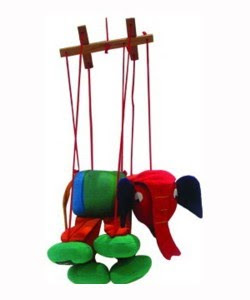An interesting thought. And a depressing one, when you realise that those people you've relied on for your coffee and muesli are almost certainly being exploited and oppressed by the unfair power balance in world trade.
But what can you do? Surely it's beyond your control? Wrong. You can buy Fair Trade products. The term “fair trade” describes a system of commerce that promotes a sustainable environment, labour rights, a good wage and healthy working conditions for labourers as well as their families and communities.
Fair Trade is a growing, international movement which ensures that producers in poor countries get a fair deal. This means a fair price for their goods (one that covers the cost of production and guarantees a living income), long-term contracts which provide real security; and for many, support to gain the knowledge and skills that they need to develop their businesses and increase sales.
Fairtrade is about better prices, decent working conditions, local sustainability, and fair terms of trade for farmers and workers in the developing world. By requiring companies to pay sustainable prices, Fairtrade addresses the injustices of conventional trade, which traditionally discriminates against the poorest, weakest producers. It enables them to improve their position and have more control over their lives.
The basic principles of fair trade include:
•A fair, living wage for labourers
•Direct trade that eliminates middlemen
•Safe, healthy working conditions
•Environmental sustainability
•Respect for cultural identity
•Community development
•Opportunities for marginalized communities
Today, the variety of fair trade goods that are available has exploded. In addition to coffee and tea, consumers can now buy fair trade:
•Sugar and spices
•Dried fruits and nuts
•Chocolate and cocoa
•Rice, quinoa and other grains
•Fruit juices and honey
•Wine
•Fresh fruits and vegetables
•Cotton and cotton clothing
•Flowers
•Artwork, apparel and handicraftsFair trade goods aren’t the cheapest items on the shelf -- fair trade coffee, for example, usually isn’t as inexpensive as commercially grown coffee, but its price is similar to that of gourmet coffees. Market research has confirmed that many consumers are willing to pay more for fair trade as well as organic and other high-quality sustainable products. Proponents of fair trade goods say that any additional price is a reflection of the many benefits of the products: environmental protection, better and safer working conditions, and access to health care and education for workers and their families.
Here are a few of our favourite fair trade items available on ethikl:







No comments:
Post a Comment